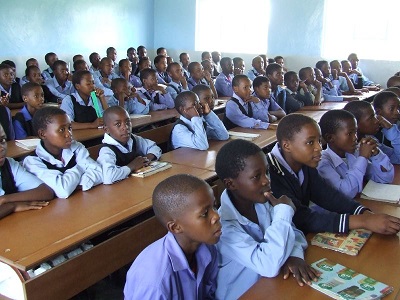It is with a deep-heart that in our country nearly 80% or so Grade 4 learners cannot read with comprehension in any language, more so in their mother tongue.
Although initiatives such as World Read Aloud Day (February 5) should be celebrated and commended by those spearheading the cause- in SA we should make it our daily bread.
And yes, the hardest hit are schools in remote and disadvantaged areas, where learners still continue to study under appalling conditions, make-shift classes, poor infrastructure and help themselves in pit-toilets that continue to claim lives of our young-ones.
Another factor is nutrition (unfortunate family background) that young leaners experience that result in less class attention and at times bunking, class overcrowding, not to mention non-existence of scholar transport that is now affecting some schools in the North West Province.
All these tend to have an impactful consequence on studying and concentration in class, especially to growing minds.
Therefore, it cannot be that there is one day on the international calendar that deserves every educator, parent and child’s attention: World Read Aloud Day celebrates the power of words, as shared audibly among people of all ages.
According to READ Educational Trust, reading aloud holds so many rewards. For one, this activity promotes a stronger vocabulary. One of the main ways in which children hone their language skills, is through listening.
Kids don’t just hear the word in isolation; they are exposed to the context in which that word is used. This opens up a world of possibility for them, and expands their communication potential.
‘Attention deficit’. This term is bandied about so frequently nowadays, but just imagine the power that is just waiting to be unleashed, in a few weekly ‘read aloud’ sessions in the classroom setting!
No phones to distract the thoughts, and someone who reads a popular choice of reading material, grabbing the audience’s interest, increasing the learners’ attention span! Make no mistake: the right book, read by an enthusiastic reader, can make a world of difference to children, young and old!
A well-written story can communicate coping skills to a group of learners who might be faced with a particular problem. Reading aloud can provide a safe way of identifying emotions in the classroom or home setting… think of a topic like bullying, for example.
A gripping tale on the subject could encourage children to express their feelings during discussion time, and help to diffuse emotions.
Both in the classroom and at home, reading aloud undoubtedly promotes bonding. The quality time helps adults unwind as well; reinforces relationships and helps kids develop their social and interpersonal skills.
The child who grows up to read with understanding, is set on a sure path of success. Help the children you know, stand out of the crowd, today!
Since 1979, READ Educational Trust has successfully promoted literacy across South Africa; reaching the historically disadvantaged, and making a difference in the lives of children hungry for knowledge and skills.
Mind boggling questions is: how do we reduce that scary 80% in three or five years, and is it attainable?
Is the private sector listening because we cannot expect Government to do it all alone?
What happened to PPP?
For a start –together we should -as South Africans embrace reading EVERYDAY because to my little understanding it has nothing to do with class, race or division…or is it?
Image (Over-crowding in some schools result in poor concentration in class).

